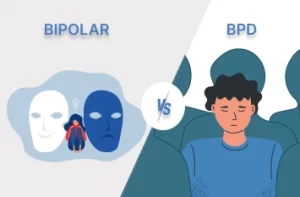
How to Overcome Depression After Vacation?
How to Overcome Depression After Vacation? Get Instant Relief Now! It’s not uncommon to feel a wave of emotions, including sadness or even tears, after

In health and well-being, the spotlight has historically focused predominantly on physical fitness, leaving the equally crucial domain of mental health in the shadows. However, in recent years, there has been a paradigm shift, acknowledging that mental health is an integral component of overall wellness. Despite this growing awareness, one specific facet often remains shrouded in silence — men’s mental health. It’s time to break this silence and delve into the nuances of men’s mental health matters, exploring the challenges faced and unveiling strategies to build resilience.
In this blog, we will shed light on the significance of men’s mental health, dismantling myths and misconceptions, and providing actionable insights to help men build resilience.
Despite the growing discourse around mental health, the unique challenges faced by men in this realm often remain overshadowed. Societal expectations and traditional gender norms have contributed significantly to the overlooking of men’s mental health.
From a young age, boys are often taught to be tough resilient, and to avoid displaying vulnerability — an upbringing that can inadvertently foster a reluctance to express and address their emotional well-being. The stigma surrounding mental health issues, coupled with the pressure to conform to rigid gender roles, creates a daunting barrier for men seeking support.
Moreover, the perception that mental health struggles are a sign of weakness can lead to self-stigmatization, pushing men further into the shadows. In workplaces, communities, and even within personal relationships, there’s a prevailing narrative that encourages men to bear the weight of their emotional burdens silently.
This societal conditioning not only perpetuates the cycle of silence but also makes it challenging for men to recognize and articulate their mental health needs. By understanding the roots of this oversight, we can begin to dismantle these barriers and foster an environment that empowers men to prioritize their mental well-being without fear of judgment or societal expectations.
Untreated mental health issues can exert a profound and lasting impact on men, affecting various facets of their lives. From strained personal relationships to diminished workplace productivity, the repercussions of neglecting mental health are far-reaching. The stigma surrounding seeking help often exacerbates the issue, as men may be hesitant to reach out for support, leading to a cycle of untreated mental health struggles.
Understanding the gravity of this impact is crucial for fostering an environment that encourages men to prioritize their mental well-being.
Strained Relationships: Unaddressed mental health challenges can strain relationships with family, friends, and partners, as the emotional toll may lead to communication breakdowns and interpersonal conflicts.
Workplace Productivity: Mental health struggles can significantly impact job performance, leading to decreased productivity, absenteeism, and increased workplace stress.
Physical Health: Untreated mental health issues often manifest in physical symptoms, contributing to a decline in overall health and well-being.
Isolation and Withdrawal: Men grappling with untreated mental health concerns may withdraw socially, leading to feelings of isolation and further exacerbating their emotional struggles.
Risk of Substance Abuse: In an attempt to cope, some men may turn to substance abuse, further complicating their mental health and creating additional challenges for recovery.
Long-Term Consequences: The cumulative impact of untreated mental health issues can result in long-term consequences, affecting not only the individual but also the broader community and society as a whole.
Men’s mental health is not an isolated concern; rather, it holds profound implications for the collective well-being of communities and societies. When men are empowered to prioritize and address their mental health, the positive effects ripple through various aspects of life. Open conversations and support for men’s mental health contribute to healthier relationships, more productive workplaces, and a more compassionate society overall. Recognizing the interconnectedness of mental well-being fosters a culture of empathy and understanding, benefiting individuals, families, and communities alike.
Male anxiety, like any form of anxiety, is a complex interplay of various factors that can have profound effects on mental well-being. Understanding the causes behind male anxiety is essential for breaking down stereotypes and fostering an environment where men feel comfortable seeking support. While individual experiences may vary, several common factors contribute to the prevalence of anxiety among men.
In the journey to prioritize men’s mental health, proactive steps are essential to break down barriers and foster a culture of well-being. Embracing a holistic approach that addresses the physical, emotional, and societal aspects of mental health is key. From encouraging open conversations to promoting self-care practices, a concerted effort is needed to empower men to prioritize their mental well-being.
Here are actionable steps to take in order to foster a supportive environment for men’s mental health:
Promote Mental Health Education:
Disseminate information about mental health to debunk myths and reduce stigma, fostering a more informed and empathetic community.
Encourage Open Conversations:
Create spaces for open and judgment-free conversations about mental health, allowing men to share their experiences and seek support without fear of stigma.
Challenge Gender Stereotypes:
Challenge societal expectations that reinforce traditional gender norms, encouraging a more inclusive and accepting view of masculinity that embraces emotional expression.
Workplace Mental Health Programs:
Implement workplace programs that focus on mental health, providing resources, support, and a conducive environment for employees to prioritize their mental well-being.
Promote Healthy Coping Mechanisms:
Encourage the development of healthy coping mechanisms, such as mindfulness, exercise, and creative outlets, to manage stress and enhance emotional resilience.
Accessible Mental Health Resources:
Ensure that mental health resources, including therapy and counseling services, are easily accessible and destigmatized, encouraging men to seek help when needed.
Foster Supportive Networks:
Create supportive networks within communities, workplaces, and social circles that actively promote understanding, empathy, and mutual support for men navigating mental health challenges.
Involve Men in Mental Health Advocacy:
Engage men in mental health advocacy efforts to amplify their voices, reduce stigma, and promote the importance of mental well-being within diverse communities.
Provide Trauma-Informed Care:
Recognize the impact of past traumas and provide trauma-informed care to address underlying issues contributing to anxiety and mental health challenges.
Encourage Regular Mental Health Check-ins:
Normalize regular mental health check-ins, emphasizing the importance of preventive measures and early intervention in maintaining mental well-being.
Mental illness affects people of all genders, and there’s no single “most common” for any particular group. However, research suggests that men are more likely than women to experience certain mental health conditions, such as:
It’s important to remember that these are just general trends, and individual experiences can vary greatly. If you or someone you know is struggling with mental health, it’s important to seek professional help. Mental health resources are available for everyone, regardless of gender.
It’s true that men are less likely than women to seek mental health help, and there are several complex reasons behind this. Here are some of the key factors:
Societal Stigma: Traditional masculinity often emphasizes being strong, stoic, and independent. This can make it difficult for men to admit to struggling with their mental health, as they may fear being seen as weak, vulnerable, or incapable.
Difficulty Expressing Emotions: Men may be socialized to suppress or avoid expressing emotions, particularly those considered “negative,” like sadness, anxiety, or fear. This can make it challenging for them to talk about their mental health concerns, even with close friends or family.
Lack of Awareness: Mental health issues can manifest differently in men than in women. For example, men may be more likely to cope with stress through substance use or risky behavior rather than seeking professional help. This can make it harder for them to recognize the signs of a mental health problem in themselves.
Limited Access to Resources: Men may be less likely to know where to find mental health resources or may not feel comfortable accessing traditional therapy settings. Additionally, some mental health services may not be adequately tailored to meet the specific needs of men.
Fear of Judgment: Men may worry about being judged or discriminated against if they seek mental health help. This fear can be particularly strong in certain professions or workplaces.
It’s important to remember that these are just generalizations, and not all men experience these barriers in the same way. However, understanding these factors can help us create a more supportive environment where men feel comfortable seeking help for their mental health.
The imperative to prioritize men’s mental health is not just a personal commitment but a societal responsibility. By dismantling stereotypes, fostering open dialogues, and implementing supportive measures, we can create an environment where men feel empowered to prioritize their mental well-being. Through these collective efforts, we pave the way for a healthier, more compassionate world that recognizes and values the mental health of every individual.

How to Overcome Depression After Vacation? Get Instant Relief Now! It’s not uncommon to feel a wave of emotions, including sadness or even tears, after

Differences Between Borderline Personality Disorder and Bipolar Disorder In mental health, where clarity is often obscured by the complexities of the mind, distinguishing between Borderline

Why Do I Hear Voices in My Head? Get Instant Relief Now! Have you ever experienced the sensation of hearing voices in your head? You
